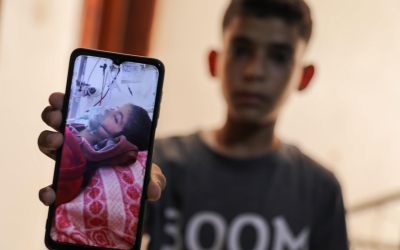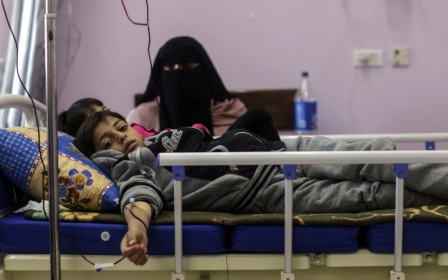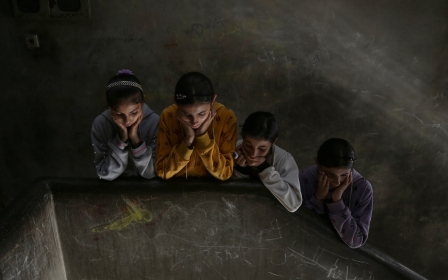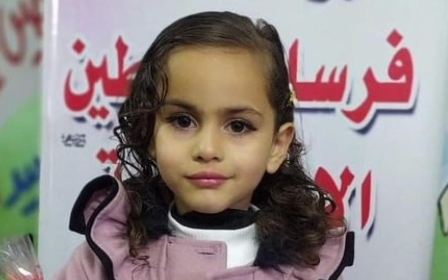Depleted Gaza hospitals count losses after Israel's offensive
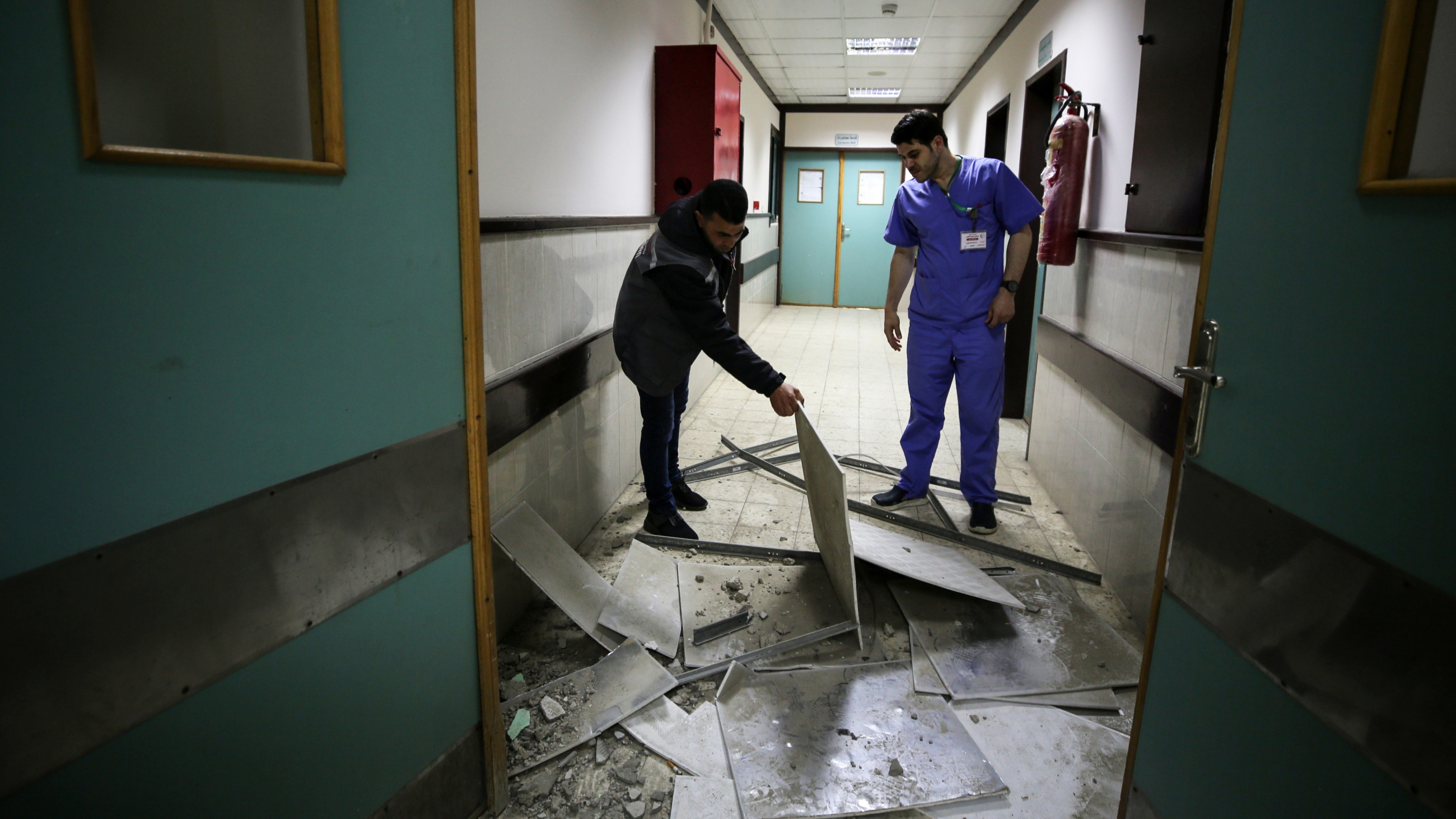
When Israel launched its five-day assault on Gaza earlier this month, Palestinian hospitals were immediately pushed into crisis mode.
Already under-equipped following 16 years of an Israeli-led blockade, medical workers scrambled to evacuate patients receiving urgent care to make way for those wounded from the new air strikes.
Medical supplies and medicine that were already rationed to meet the needs of Gaza's two million people began to run out quickly.
And with Israel closing crossings with Gaza - preventing the entry of fuel, aid, and other supplies - doctors were bracing for the worst.
"This was especially challenging when many homes experienced a high number of injuries [from Israeli air strikes] at the same time," said Bassam Al-Hamadin, assistant undersecretary at the Palestinian Ministry of Health in Gaza.
New MEE newsletter: Jerusalem Dispatch
Sign up to get the latest insights and analysis on Israel-Palestine, alongside Turkey Unpacked and other MEE newsletters
"In hospitals, we were compelled to halt all surgeries to prioritise the victims of the bombing who required immediate and intensive care," Hamadin told Middle East Eye.
In five days of bombing, which started on 9 May, Israel killed 33 Palestinians and wounded 190 others. Six children were among those killed and 64 were wounded.
The assault came to a halt on the night of 13 May after Egypt brokered a ceasefire between Israel and Palestinian groups in Gaza.
A large-scale crisis for the enclave's medical system was avoided, but the depleted hospitals are still struggling, with no hope for permanent recovery on the horizon.
'Significantly strained'
According to Hamadin, the assault severely affected the medical system, leading to a "rapid depletion of crucial resources".
He said resources that in normal circumstances would last for a month were used up during a single day of the bombing campaign.
"The unprecedented demand, particularly for surgical materials, significantly strained their availability," Hamadin added.
Before the assault, the Gaza Strip already suffered from a 50 percent shortage of medicines and supplies.
The health sector is still recovering from the impact of a three-day bombing campaign by Israel in 2022 and an 11-day bombing campaign in 2021.
The repeated military operations come while Israel maintains an air, sea, and land blockade on Gaza that has been in place since 2007.
Due to the blockade, the health sector lacks adequate infrastructure, and facilities are overstretched, while service is frequently interrupted by power cuts, according to the UN.
To make matters worse, hospitals and clinics often suffer direct or indirect damage from Israeli air strikes during military operations.
Al-Aqsa Martyrs Hospital in central Gaza, which provides help to approximately 350,000 people, was damaged in the recent escalation after a house next to it was hit in a raid.
Iyad Abu-Zaher, the hospital's director, said the attack caused partial damage to several departments, including the intensive care unit.
The Indonesian Hospital in Beit Lahia, in northern Gaza, also suffered minor damage following a bombing nearby that caused electric cables, air conditioning systems, and ceilings in several hospital rooms to collapse.
Patients and crossing closures
Palestinian patients in Gaza receiving life-saving treatment were the first to suffer from the blockade and attacks affecting hospitals.
For example, the movement of kidney patients who require regular dialysis sessions becomes severely disrupted, particularly for people residing in remote areas, putting them at risk of suffering life-threatening complications.
'Israel's practices during the assault are flagrant violations of international humanitarian law'
- Yahia Muharib, lawyer
The transport of medical staff, including doctors and paramedics, to hospitals also becomes a daunting task due to the bombardment.
Additionally, patients who are referred from Gaza for further treatment in the West Bank also get stuck, as Israel closes the only pedestrian crossing - the Beit Hanoun (Erez) crossing - which it has with Gaza during military operations.
According to the Gaza-based Al Mezan Center for Human Rights, 427 people were prevented from leaving Gaza between 9-11 May this year. They were mostly cancer patients, including 27 cases requiring life-saving treatment.
"Israel's practices during the assault are flagrant violations of international humanitarian law," Yahia Muharib, a lawyer at Al Mezan, told MEE.
"An occupying power is prohibited from punishing the civilian population," he added.
Middle East Eye delivers independent and unrivalled coverage and analysis of the Middle East, North Africa and beyond. To learn more about republishing this content and the associated fees, please fill out this form. More about MEE can be found here.


